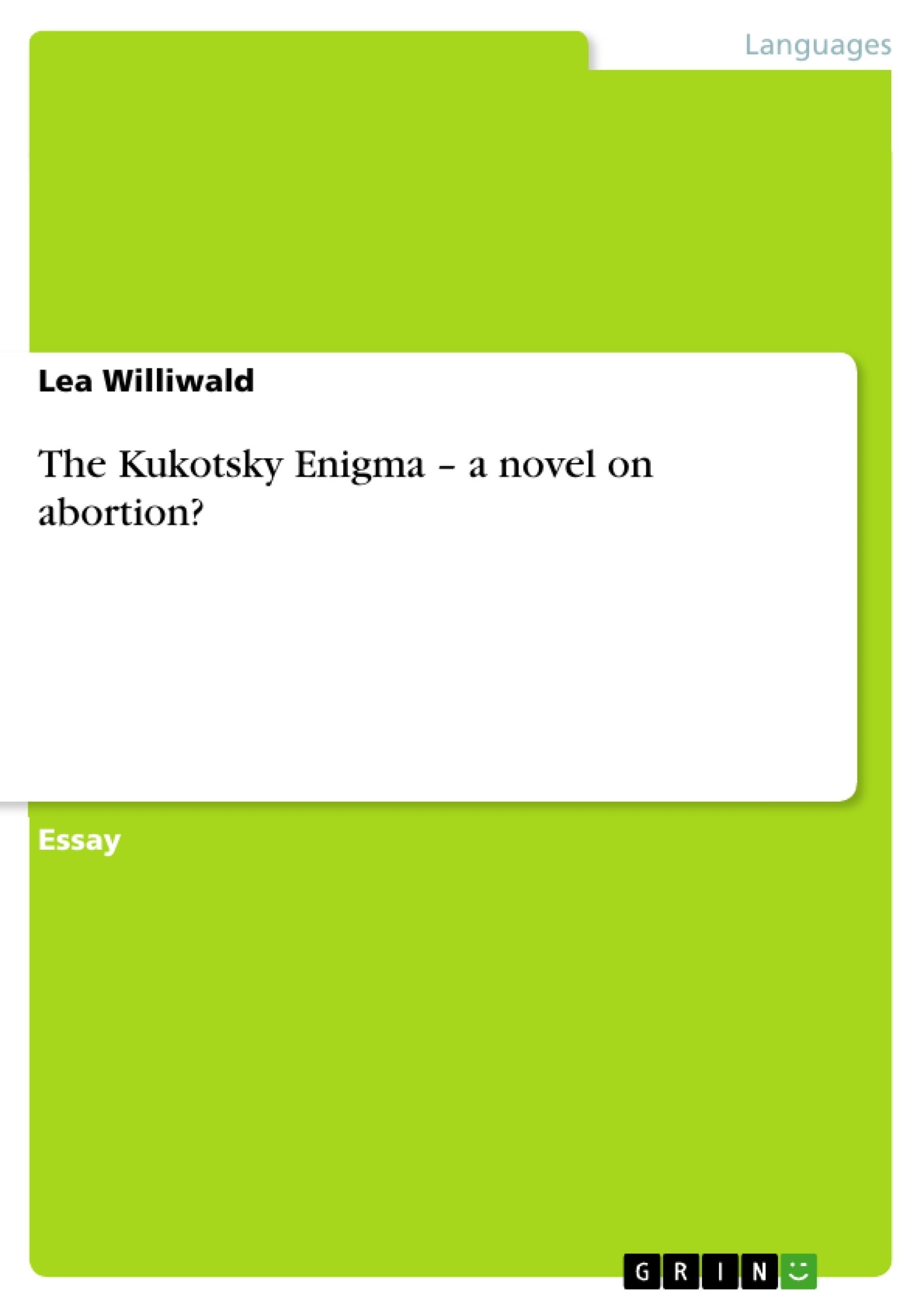Ludmila Ulitskaya is a renowned Russian writer and "The Kukotsky Enigma" is among some of her most famous novels. It revolves around the story of a family and how they function as Russia changes throughout the late 19th and early 20th centuries. Doktor Pavel Alekseevich Kukotsky is at the center of the story as he tries to keep up with the effects, political changes have on his profession, which is specifically focussed on women's health. Consequentially, abortion, motherhood and femininity become central parts of the novel.
This essay asks the question of whether the novel takes a clear stance towards or against the legalization of abortion, thereby discussing Ulitskaya's views, the theory of the artist's intention behind art, and basic concepts of women's reproductive health such as the Pro-Choice movement.
Inhaltsverzeichnis (Table of Contents)
- The Kukotsky Enigma
- The Theme of a Novel
- Ludmila Ulitskaya as an Author
- Ulitskaya's Political Views and their Influence on the Novel
- The Topic of Abortion in the Context of Russian Politics
Zielsetzung und Themenschwerpunkte (Objectives and Key Themes)
This essay aims to examine the themes and motives of Ludmila Ulitskaya's novel "The Kukotsky Enigma", exploring the historical context of the plot and Ulitskaya's stance on the novel. It will discuss whether the novel focuses on the history of a family formed under unusual circumstances or takes a stance on the long-standing debate about abortion.
- The history and development of a Russian family under the shadow of political events.
- The theme of abortion and the author's perspective on the issue.
- The impact of political context on personal and societal choices.
- The exploration of the Russian soul and the complexities of human experience.
- The role of the author's intentions and the reader's interpretation in understanding a novel.
Zusammenfassung der Kapitel (Chapter Summaries)
The essay begins by defining the theme of a novel and exploring the debate around the author's intention versus the reader's interpretation. It then delves into Ulitskaya's personal life and political views, highlighting her outspokenness on national politics and her activism for freedom and democracy. This section explores the author's perspective on the inevitability of politics and how it influences her writing.
The essay then moves on to examine the topic of abortion in the context of Russian politics, outlining the pro-choice and pro-life movements. It provides a historical overview of abortion restrictions in Russia and discusses the current legal landscape and social attitudes surrounding abortion.
Schlüsselwörter (Keywords)
The key themes and concepts explored in this essay include the history of a Russian family, the debate on abortion, the author's political stance, Russian politics, the complexities of the human experience, the role of the author's intention in interpreting a novel, feminist theory, and the impact of political events on personal and societal choices.
Frequently Asked Questions
What is the main focus of Ludmila Ulitskaya's novel "The Kukotsky Enigma"?
The novel follows the story of a Russian family through the late 19th and early 20th centuries, focusing on how political changes affect personal lives and professions.
Who is the central character of the story?
The central character is Doktor Pavel Alekseevich Kukotsky, a physician specialized in women's health.
Does the novel take a clear stance on abortion?
The essay discusses whether the novel advocates for or against the legalization of abortion, exploring Ulitskaya's views and the historical context of reproductive rights in Russia.
How does politics influence the novel?
Politics is shown as an inevitable force that shapes societal choices, personal ethics, and the medical profession, particularly regarding women's rights.
What are the key themes explored in the essay?
Key themes include Russian history, the pro-choice movement, the artist's intention, femininity, and the impact of political events on family dynamics.
- Arbeit zitieren
- Lea Williwald (Autor:in), 2021, The Kukotsky Enigma – a novel on abortion?, München, GRIN Verlag, https://www.grin.com/document/1132246



